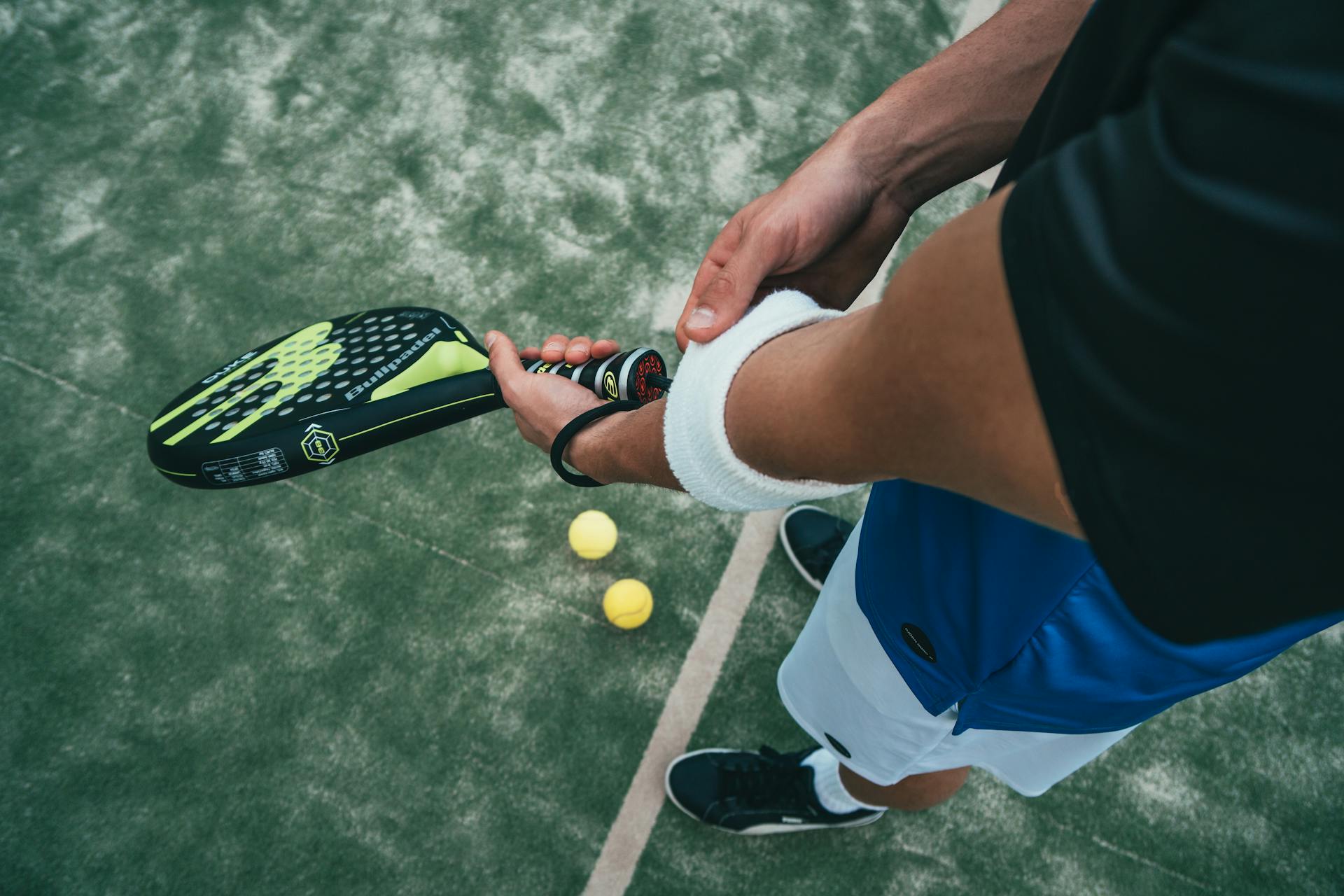
Trail runners who love the outdoors may be keen to do their road running in their trusted trail running shoes, but is this advisable? Opinions are divided on the topic, but there are a few points to consider before you lace up your trail running shoes and hit the pavement.
The most important point is safety. Trail running shoes are designed for off-road surfaces, and have some features that can actually make them dangerous to use on roads - for example, some have lugs or cleats that can be slippery on pavement. In addition, road surfaces tend to be harder and flatter than trails, making it more likely that you might experience pain in your calves or joints if you opt for a trail shoe on the road.
However, if you’re really attached to your trail runners and want to give them a go on the road anyway, then be sure to look out for certain features when making your choice. For starters, bear in mind that you’ll probably wear through any soft cushioning in the sole much faster than if you wore a dedicated road shoe. Also look for tread designs with less aggressive and shorter lugs. Generally speaking though, investing in a pair of good quality dedicated running shoes will provide superior performance and comfort - especially on roads or other hard surfaces.
In conclusion, while it’s possible to run on roads using trail running shoes under certain circumstances, it’s generally safer and more comfortable to opt for a dedicated road shoe designed specifically with hard courses in mind. Whichever type of shoe you choose, ensure that you always take adequate precautions before heading out onto roads or trails!
Discover more: Dedicated Server
Are trail running shoes suitable for running on the road?
Trail running shoes are specially designed to provide support and protection on trails with uneven, rocky, and muddy terrain. The soles of these shoes have unique tread patterns and are constructed with more durable materials than a typical road running shoe allowing them to handle trails much better than typical road running footwear. But many runners ask themselves, “Can I use my trail shoes to run on the pavement?”
The short answer is - yes. Most trail shoes are still suitable for running on the road and can perform adequately in this setting. However, keep in mind that their design is not optimized for longer runs or for use on cement or asphalt surfaces. That’s because typical road running shoes have different designs: thinner midsoles, firmer heel cushioning, harder material underfoot, smoother outsoles and an extended heel-to-toe drop that adds extra springiness with each stride. Plus they’re generally lighter than trail running shoes meaning less weight on your feet and legs over a long run.
In conclusion, using trail running shoes for road running is entirely possible - but it’s important to know that you may sacrifice performance depending on the distance you plan to tackle. If you’re an experienced runner who just wants the extra cushioning of a full-fledged trail shoe when pounding the pavement then by all means take advantage of their capability – otherwise sticking to traditional road running shoes may be best.
For more insights, see: Air Max 90 Shoes Offer Cushioning
Is it safe to use trail running shoes on pavement?
In the world of running and other activities, many individuals have debated whether or not it is safe to use trail running shoes on pavement. On the surface, it seems like a logical transition – after all, trail running shoes are designed for tough terrain, so surely they'll be strong enough for roads too? That's not always the case.
Trail running shoes usually have specialized outsoles that are designed for rough surfaces and ultimately provide more traction than a regular road shoe. They are designed to handle rocks and roots, as well as uneven surfaces in general. There is also often more cushioning in the heel of a trail running shoe, which can be helpful in softening longer descents or during steep hillsides. Pavement however generally offers a rigid surface and does not require specialized outsoles nor cushioning that is normally found in trail running shoes. That said, using them on road runs may subject you to an increased risk of blisters, bunions and other toe related injuries due to their stiffer construction compared to your traditional road-specific shoe.
Given the proper knowledge and due diligence though, trail running shoes can be used on pavement and shorter distances without much issue - but it is important to note that they are not completely safe and may result in injuries over time if used excessively on street surfaces. Therefore, you should keep track of how often you do use them on pavement vs trails and make sure you switch off accordingly to ensure optimal safety - your feet will thank you for it.
On a similar theme: Volleyball Shoe
What are the benefits of using trail running shoes on the road?
Trail running shoes have become popular over the past few years, not only for off-road adventures, but also for running on roads and sidewalks. Not all shoes are created equal and there are many benefits to using trail running shoes while on the road and sidewalks.
Firstly, trail running shoes are designed specifically to provide better traction and grip compared to standard road running shoes. The extra durability that comes with most trail running shoes can help protect runners even on a harder surface like concrete. Most will also include thicker outsole lugs which increase the shoe’s grip, protecting runners against slips, slides, or falls.
In addition to extra safety features, trail running shoes come with more comfort options than regular road shoes. With increased support around the heel and Arch-Lock technology designed to provide additional arch grip and stability, runners will notice a difference in comfort levels between their traditional road shoe and a new pair of trail runners. Moreover, with shock absorption features built directly into the sole of some brands of trail running shoe, those with foot pain or plantar fasciitis may find these an especially comfortable choice when looking for new shoes.
In conclusion, trail running shoes could prove an invaluable asset for many runners who look for additional traction and stability as well as added foot protection during their long lasting runs on either roads or trails. From extra grip on the streets to better shock absorption in rocky trails, these specialized type of footwear could be just what you need in order to make your runs safe and comfortable – no matter how tough the terrain may be!
Suggestion: Lightest Basketball Shoe
Are trail running shoes designed for both on and off road running?
Trail running shoes are designed to provide runners with additional protection, support, and grip when running primarily on trails and rugged terrain. They come with thicker soles than traditional road running shoes which help cushion the feet while traversing rocky or uneven terrains. The outsoles on trail running shoes tend to be much more aggressive, featuring dramatic lug patterns that dig into rocks, mud, and dirt to provide better traction and grip. Trail running shoes also typically feature reinforced toe boxes and mesh material to provide better protection against sticks or rocks that may come in contact with feet while treading the trails.
All this being said, trail running shoes are also suitable for traditional road running as they offer much of the same cushioning and impact protection as regular road running shoes. While they may not provide the same level of traction as a true trail shoe would due their less aggressive outsole design, they are still more than capable of keeping you on your feet through a wide variety of conditions that you may encounter when pounding the pavement. Additionally, having a more rigid sole will help protect your feet from injuries such as tendonitis or plantar fasciitis which can be caused by excess stress resulting from repetitively pounding pavement too hard.
In conclusion, trail running shoes are certainly designed with trails in mind but you should feel no hesitation using them exclusively for road runs. Sure they may not offer the same level of responsiveness as a dedicated road shoe but given the added support and protection they offer your extremities it’s well worth making them your preferred choice if you’re looking for an all-in-one specialized running shoe for both on and off road conditions.
Explore further: How to Train a Husky to Not Run Away?
Is it better to use trail running shoes on the road or road running shoes?
Trail running shoes and road running shoes each have their own advantages and disadvantages depending on the surface being run on, so the question of which is better largely depends on individual preference. Trail running shoes are typically crafted with a more rugged design and feature sturdy soles with aggressive lugs. These lugs allow them to provide excellent traction when running on dirt trails, rocky terrain, grass, snow, wet surfaces and other uneven surfaces. Additionally they often include a wider toe-box which gives your toes room to spread out in an off-road shoe - which is especially helpful for stability when running in rough conditions.
However, for running on roads and harder surfaces such as pavements or smooth tracks, road running shoes are a better choice. These shoes contain less cushioning than trail runners but still remain comfortable. They also features a thinner sole with fewer lugs meaning no changes in cushioning or traction due to heavy wear from different terrain. Additionally, road runners often include enhanced technology such as medial posts to increase pronation control during foot strike phases - something trail runners lack due to the rough terrain of trails which requires flexible feet for proper application of stability.
Ultimately it comes down to which kind of surface you plan on spending most of your time running on as well as individual preference; if most of your time is spent doing off-road activities then trail shoes are obviously a good choice however if you plan on primarily exploring paved roads then a quality pair of road runners will suit you best.
Discover more: What to Wear When Running in Rain?
Can trail running shoes handle different types of terrain on the road?
Trail running shoes are designed and built to offer durability and support to runners tackling a variety of terrains. These versatile shoes provide superior grip and stability on muddy trails, loose sand, rock beaches and other natural obstacles. While trail running shoes are often used for outdoor running excursions, they can also be used for road running as well.
Trail running shoes have certain features that give them an advantage over traditional running shoes when dealing with different types of terrain. Their outsoles have longer lugs, or rubber ridges, that provide significant grip on all types of surfaces from dirt roads to wet surfaces like snow. They also feature more cushioning variety than traditional sneakers which helps soften the impact from the various rocks and debris found on uneven surfaces. Additionally, trail running shoes are usually a bit heavier due to their solid construction which can help keep the runner's foot stable while traversing rough ground.
These shoes also offer some advantages over regular road running sneakers when taking on the roads. Trail running shoes offer more protection against any uncovered obstacles you may encounter while on the road as well as cushion your feet better as you transition onto paved or dirt pathways over long distances. They can also reduce leg and hip fatigue due to the added cushion which is especially important if you’re planning a run of any substantial length or intensity outdoors.
In short, trail running shoes have features that make them much better suited for more varied terrains than road only sneakers – so if you find yourself going off-road during any of your runs then trail running shoes are a great choice for your footwear needs!
Worth a look: Buy Baseball Field Dirt
Sources
- https://revelsports.com/can-i-use-trail-running-shoes-on-the-road/
- https://www.gearpatrol.com/outdoors/g39586633/trail-running-shoes/
- https://www.verywellfit.com/can-i-wear-trail-running-shoes-when-running-on-roads-2911787
- https://www.advnture.com/features/trail-shoes-on-road
- http://gorilla-fitnesswatches.com/can-you-use-trail-running-shoes-on-the-road/
- https://revelsports.com/trail-vs-road-running-shoes/
- https://sportsmanist.com/is-it-ok-to-wear-trail-running-shoes-on-pavement
- https://www.livefortheoutdoors.com/trail-running/shoes/best-road-to-trail-running-shoes/
- https://thatrunningthing.com/can-you-wear-road-running-shoes-on-trails/
- https://gorilla-fitnesswatches.com/can-you-use-trail-running-shoes-on-road/
- https://thehikingauthority.com/are-trail-running-shoes-good-for-road-running/
- https://trailandsummit.com/are-trail-running-shoes-good-for-road-running/
Featured Images: pexels.com


